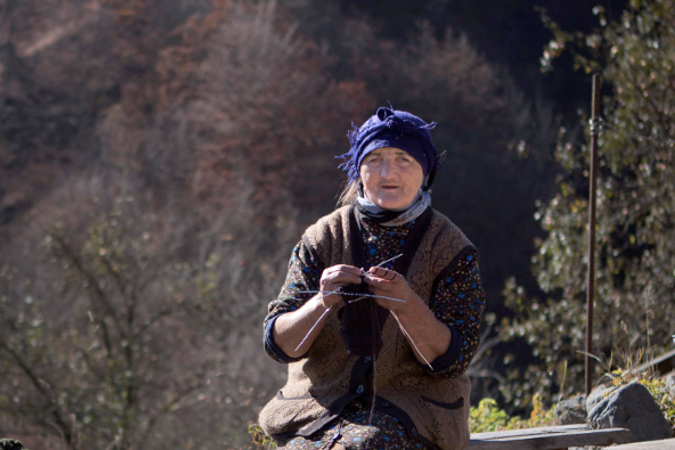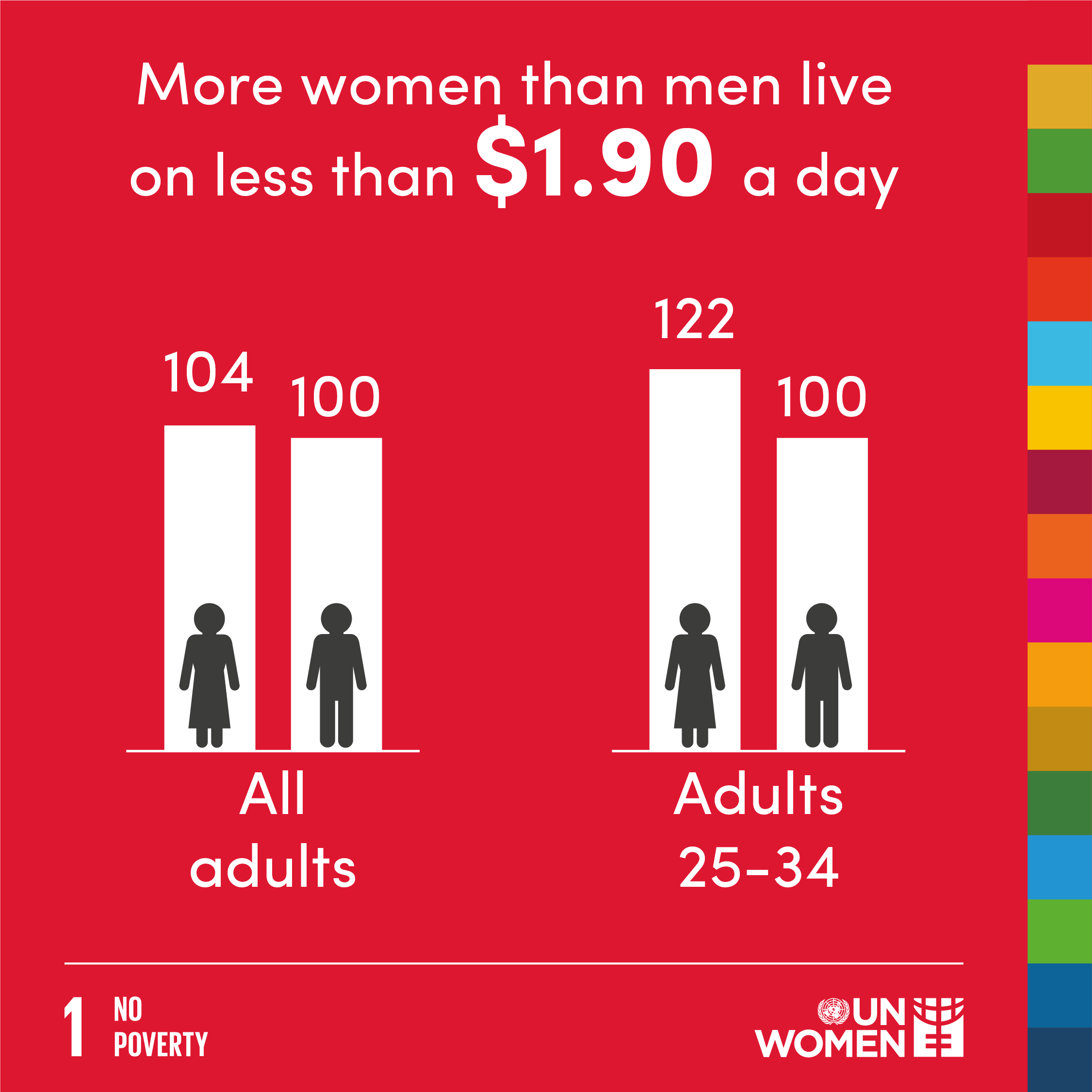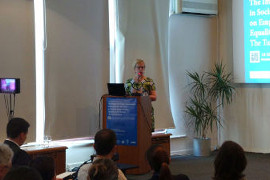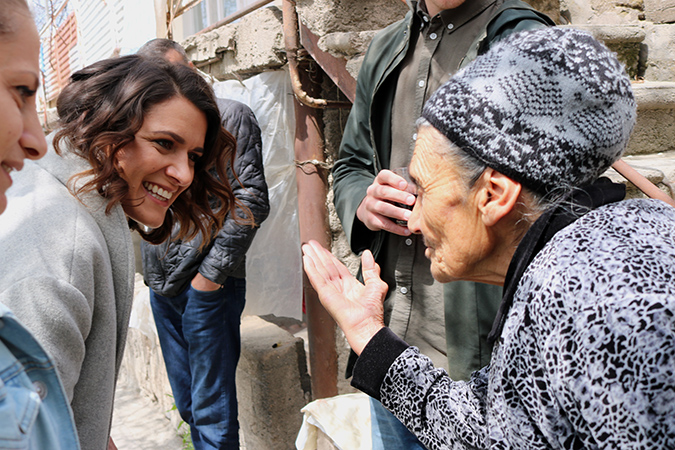SDG 1: End poverty in all its forms everywhere

Targets
- By 2030, ensure that all men and women, in particular the poor and the vulnerable, have equal rights to economic resources, as well as access to basic services, ownership and control over land and other forms of property, inheritance, natural resources, appropriate new technology and financial services, including microfinance.
- Create sound policy frameworks at the national, regional and international levels, based on pro-poor and gender-sensitive development strategies, to support accelerated investment in poverty eradication actions.
- By 2030, eradicate extreme poverty for all people everywhere, currently measured as people living on less than USD 1.25 a day.
- By 2030, reduce at least by half the proportion of men, women and children of all ages living in poverty in all its dimensions according to national definitions.
- Implement nationally appropriate social protection systems and measures for all, including floors, and by 2030 achieve substantial coverage of the poor and the vulnerable.
- By 2030, build the resilience of the poor and those in vulnerable situations and reduce their exposure and vulnerability to climate-related extreme events and other economic, social and environmental shocks and disasters.
- Ensure significant mobilization of resources from a variety of sources, including through enhanced development cooperation, in order to provide adequate and predictable means for developing countries, in particular least developed countries, to implement programmes and policies to end poverty in all its dimensions.
World leaders have committed to ending poverty by 2030. But that aspiration can only be achieved by ending the discrimination that traps women in poverty. Globally, 1 in 5 girls are in households living on less than US$1.90 a day, a sum that leaves them without enough food, housing, health care or education.

Between the ages of 25 and 34, poverty gaps between women and men are particularly acute as women struggle to combine paid work with an unequal burden of care for children and other dependents. Globally, for every 100 men in this age group who are poor, there are 122 women.
Poverty rates by sex in Central and Southern Asia are 15.8 per cent for women and 14.5 per cent for men. When adjusted for the fact that men outnumber women in the population, the results indicate that women globally are 4 per cent more likely than men to live in extreme poverty, while the gender gap rises to 8 per cent in Central and Southern Asia.
Women’s poverty arises from unequal access to economic resources. Discriminatory norms may keep them in certain occupations, working for wages less than those of men. Legal statutes may restrict their ability to inherit land or seek credit. Women left financially dependent on men are more vulnerable to poverty, and less equipped to manage risks such as economic downturns.
UN Women acts to end poverty through programmes aimed at income security, decent work and economic autonomy. Providing training, loans and practical skills to empower poor women economically, the programmes give them a voice. We help ensure women’s equal access to essential services, control over land and other property, inheritance, natural resources, new technology and financial services.
Stories
Empowering women in the farthest corners of Armenia
In most rural areas in Armenia, people rely on small scale and subsistence farming. Without appropriate processing equipment, women farmers couldn’t rely on sustainable income from their produce. A UN Women Fund for Gender Equality programme is supporting women farmers, providing them with equipment and training to diversify and market their produce.

Investing in early childcare would generate hundreds of thousands of jobs in Turkey
Prioritizing state spending to expand Turkey's social care service infrastructure would create hundreds of thousands of new jobs, improve gender equality in the labour market and reduce poverty through dual earner households, according to a landmark study prepared by Istanbul Technical University Women's Studies Center, supported by UN Women.
